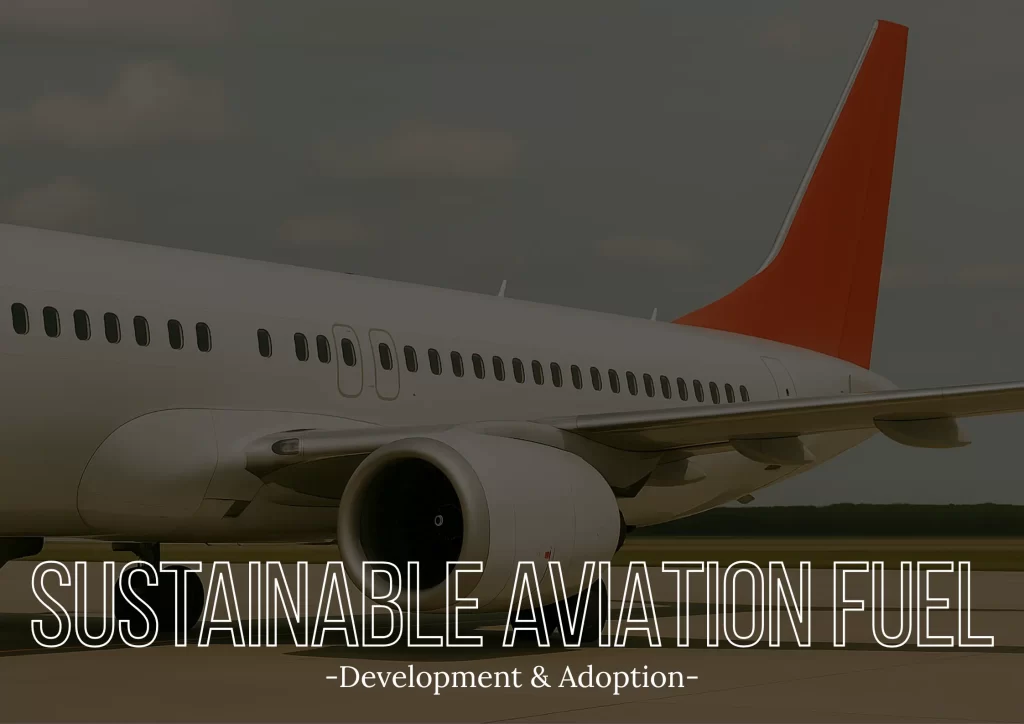
✈️ Introduction to Sustainable Aviation Fuel (SAF)
Sustainable Aviation Fuel (SAF) is no longer a futuristic concept—it’s the present and future of carbon-neutral aviation. With global air traffic expected to double by 2045, the aviation industry is under pressure to decarbonize. SAF is emerging as a pivotal aviation fuel alternative, capable of reducing lifecycle greenhouse gas emissions by up to 80% compared to traditional jet fuel.
This blog will walk you through SAF’s evolution, production process, industry adoption, and policies driving its development. Whether you’re an aspiring commercial pilot or a sustainability enthusiast, this deep dive will give you critical insights into one of aviation’s most transformative trends.
🌍 The Need for SAF in Aviation
The aviation industry contributes around 2.5% of global CO₂ emissions—an increasingly unsustainable figure in a climate-conscious world. As per the International Civil Aviation Organization (ICAO), aviation emissions are set to triple without intervention.
SAF offers a viable path to carbon-neutral aviation, aligning with:
ICAO’s Carbon Offsetting and Reduction Scheme for International Aviation (CORSIA)
IATA’s goal of net-zero emissions by 2050
India’s National Civil Aviation Policy vision of sustainable air transport growth
Unlike electric or hydrogen aircraft (which are still years away from full-scale deployment), SAF can be used in current jet engines, making it a drop-in solution for immediate impact.
📜 Historical Development Timeline
2008 – First biofuel-powered flight by Virgin Atlantic using a blend of coconut and babassu oil.
2011 – ASTM International approves SAF blends for commercial use.
2016 – ICAO launches CORSIA to cap CO₂ emissions from international flights.
2021 – United Airlines completes the first commercial flight with 100% SAF in one engine.
2023 – Airbus and Rolls-Royce conduct 100% SAF engine tests, pushing boundaries of commercial viability.
2024 – Indigo and Air India begin SAF trials as part of India’s Net Zero roadmap.
🔬 How SAF is Made (Feedstocks & Process)
SAF is produced using various renewable feedstocks, such as:
Used cooking oil
Agricultural residues
Algae
Municipal solid waste
Forestry waste
Non-food crops like Camelina
✅ Key Production Technologies:
HEFA-SPK (Hydroprocessed Esters and Fatty Acids): Most commercially mature. Used by Indigo and KLM.
FT-SPK (Fischer-Tropsch): Converts biomass/gasified waste into fuel.
Alcohol-to-Jet (ATJ): Converts ethanol or butanol to jet fuel.
Power-to-Liquid (PtL): Converts renewable electricity, water, and CO₂ into synthetic fuel—still in early stages.
🚧 Adoption Challenges & Current Barriers
Despite its promise, SAF adoption is currently limited to <0.1% of global jet fuel usage.
Key Barriers:
High production costs (2–4x more than fossil jet fuel)
Limited feedstock availability
Lack of large-scale infrastructure
Regulatory bottlenecks
Airline hesitancy due to economics
In India, the situation is further compounded by limited refining capacity and policy ambiguity at the state level, though regions like Maharashtra are exploring SAF policy frameworks.
 SAF in India: Current State & Government Policies
SAF in India: Current State & Government Policies
India, home to some of the fastest-growing aviation markets like Mumbai and Pune, is catching up on SAF adoption. Key developments include:
MoCA India’s Green Aviation Policy in draft stage, aimed at incentivizing SAF.
Indian Oil & Praj Industries partnership to produce ethanol-based SAF.
DGCA guidance encouraging trials for SAF blending up to 10%.
Government Initiatives:
SAF blending mandates expected by 2030 (under 5%).
SAF pilot plant in Pune under construction by IndianOil and CSIR-IIP.
Regional focus on “SAF policy in Maharashtra” due to Mumbai’s global air traffic.
These initiatives align with India’s commitment to becoming a hub for aviation sustainability trends in South Asia.
🌐 International Progress: U.S., EU, & More
United States:
Biden’s SAF Grand Challenge: Target to produce 3 billion gallons/year by 2030.
California LCFS offers SAF producers low-carbon fuel credits.
European Union:
ReFuelEU Aviation Initiative mandates SAF blending starting at 2% in 2025, scaling up to 63% by 2050.
Others:
Japan and Singapore are investing in algae-based SAF.
UAE is testing SAF produced from desert-grown halophytes (e.g., Emirates trials).
🛫 Role of Airlines & Aircraft Manufacturers
Airlines:
Indigo partnered with Deccan Energy for SAF supply feasibility studies.
Air India, under Tata, is exploring SAF adoption as part of its fleet modernization.
Emirates completed a landmark SAF-powered flight in 2023, showcasing desert crop-based biofuel potential.
Aircraft Manufacturers:
Airbus committed to 100% SAF compatibility by 2030.
Boeing already certifies 50% SAF blend compatibility for current fleets.
Rolls-Royce tested engines with 100% SAF in 2022.
🔮 Future of SAF & Predictions
By 2040, SAF is projected to account for 25–30% of global aviation fuel. The shift will be accelerated by:
Carbon pricing and emission taxes
Airline carbon neutrality targets
Technological improvements in refining and feedstock yields
State-led policies (e.g., aviation sustainability initiatives in Mumbai & Pune)
In India, localized SAF production near aviation hubs like Pune and Mumbai will be critical. SAF could also become a pilot sustainability practice integrated into aviation training modules.
✅ Conclusion: Your Role in the SAF Future
The aviation world is preparing for a cleaner, more sustainable future—and aspiring pilots must be ready.
At Airline Prep School (ALPS), we integrate environmental awareness into our aviation training in Mumbai and Pune, ensuring tomorrow’s pilots understand the technologies shaping their industry.
Explore our upcoming Sustainability in Aviation modules, integrated into our ATPL and CPL programs, and take the first step toward becoming a future-ready, eco-conscious aviator.
📞 Get in Touch
Airline Prep School (ALPS) – Your Gateway to a Greener Sky
Mumbai Branch
📍 B Wing 103, Rassaz Castle, Opp. Gundauli Bus Stop,
Near Western Express Highway Metro Station, Malpa Dongri,
Andheri East, Mumbai, Maharashtra 400093
📞 +91 9222111042 / +91 9222111043
📧 [email protected]
Pune Branch
📍 Second Floor, Above Ganesh Bhel, Opp. FC College Main Gate,
Fergusson College Rd, Shivajinagar, Pune, Maharashtra 411004
📞 +91 9461777222
📧 [email protected]

 SAF in India: Current State & Government Policies
SAF in India: Current State & Government Policies